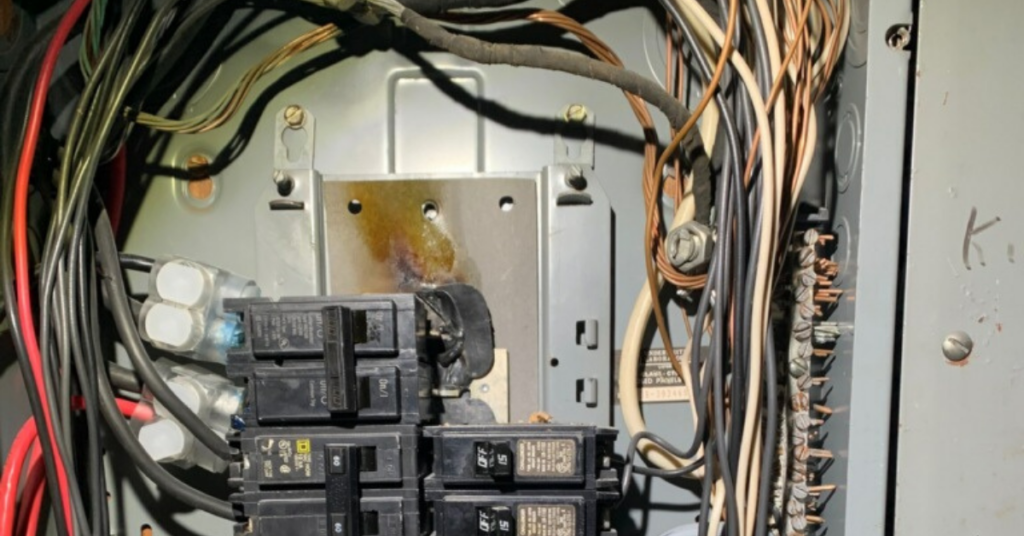Troubleshooting Demystified: Common Issues of Electric Panels
by siteadmin

Electric panels serve as the nerve center of a building’s electrical system, distributing power safely and efficiently to various circuits. However, like any complex system, electric panels can experience issues that may disrupt power distribution and pose safety hazards. Understanding common electric panel issues and how to troubleshoot them is essential for homeowners and electricians alike. In this blog post, we’ll explore some of the most common issues encountered with electric panels and discuss troubleshooting steps to resolve them effectively.
Circuit Breaker Tripping:
One of the most common issues with electric panels is circuit breaker tripping. When a circuit is overloaded or experiences a short circuit, the corresponding circuit breaker will trip, cutting off power to the affected circuit to prevent electrical hazards. To troubleshoot a tripped circuit breaker, follow these steps:
- Identify the tripped breaker by visually inspecting the breaker panel.
- Turn off all devices connected to the circuit.
- Reset the tripped breaker by firmly pushing it to the “off” position, then back to the “on” position.
- If the breaker trips again immediately, there may be a wiring issue or electrical fault in the circuit. Consult a qualified electrician for further diagnosis and repair.
Burnt or Damaged Wires:
Over time, electrical wiring within the electric panel may become worn, damaged, or corroded, leading to issues such as overheating, arcing, and electrical fires. Signs of burnt or damaged wires include discoloration, charring, or a burning smell emanating from the panel. To troubleshoot burnt or damaged wires:
- Visually inspect the wiring and connections within the electric panel for signs of damage.
- If burnt or damaged wires are detected, turn off power to the panel immediately to prevent further damage or hazards.
- Replace any damaged wires or connections with new ones, ensuring proper sizing and insulation.
- If the damage is extensive or widespread, consider hiring a licensed electrician to inspect and repair the panel.
Loose Connections:
Loose electrical connections within the electric panel can lead to voltage fluctuations, intermittent power loss, and electrical arcing, posing safety hazards and damaging electrical components. To troubleshoot loose connections:
- Visually inspect all terminal connections within the electric panel for signs of looseness or corrosion.
- Tighten any loose terminal connections using a screwdriver or wrench, ensuring a secure and snug fit.
- Check for signs of corrosion or oxidation on terminals and wires, cleaning them if necessary to ensure good conductivity.
- Consider applying a corrosion inhibitor or antioxidant compound to prevent future corrosion and maintain connection integrity.
Panel Overload:
Exceeding the rated capacity of the electric panel can lead to panel overload, causing circuit breakers to trip frequently and potentially damaging electrical components. Signs of panel overload include dimming lights, overheating breakers, and buzzing sounds emanating from the panel. To troubleshoot panel overload:
- Calculate the total electrical load of the building and compare it to the panel’s rated capacity.
- Identify any circuits or appliances drawing excessive power and redistribute the load across multiple circuits if possible.
- Consider upgrading to a higher-capacity electric panel or installing subpanels to accommodate additional electrical loads.
- Consult a licensed electrician for professional assessment and recommendations regarding panel capacity and load management.
Understanding common electric panel issues and how to troubleshoot them is essential for maintaining electrical safety and reliability in homes and buildings. By promptly addressing issues such as circuit breaker tripping, burnt or damaged wires, loose connections, and panel overload, homeowners and electricians can prevent electrical hazards, minimize downtime, and ensure the efficient operation of the electrical system. Remember, safety should always be the top priority when working with electric panels, and when in doubt, consult a qualified electrician for professional assistance.
Electric panels serve as the nerve center of a building’s electrical system, distributing power safely and efficiently to various circuits. However, like any complex system, electric panels can experience issues that may disrupt power distribution and pose safety hazards. Understanding common electric panel issues and how to troubleshoot them is essential for homeowners and electricians…
Recent Posts
- Powering Proficiency: Training and Education for Electricians
- Powering the Future: Emerging Technologies in the Electrical Industry
- Ensuring Safety: Standards and Regulations in Electrical Work by Electricians
- Troubleshooting Demystified: Common Issues of Electric Panels
- Demystifying Electric Panels: Understanding Their Components
